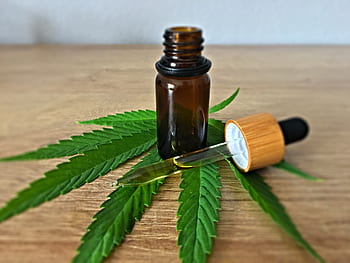
CBD has become one of the biggest trends sweeping the nation. While the cannabinoid was deemed federally legal by the 2018 Farm Bill, however, the Food and Drug Administration (FDA) has still approved only one CBD product — a prescription drug treating two rare, severe forms of epilepsy.
Thus, as CBD products continue to pop up virtually everywhere from CVS to Ulta Beauty, industry leaders and consumers alike are concerned over the lack of FDA approval. As a result, customers and retailers are pushing for more support.
FDA Draft Guidance
On Tuesday, July 21st, the FDA issued a draft guidance establishing a set of guidelines for studying cannabis in the U.S.
The guidance — which includes a cannabis testing program — specifically draws concern over inaccurate marketing for CBD products accessed by retailers and dispensaries, as well as a lack of data in regards to food products and dietary supplements.
The program, deemed the Cannabis Quality Assurance (CannaQAP) program, would help laboratories accurately measure chemical compounds, and increase the accuracy of distinguishing between plants and labeling products.
“When you walk into a store or dispensary and see a label that says 10% CBD, you want to know that you can trust that number,” NIST research chemist, Brett Wilson, explained to Marijuana Moment.
“This change gives sponsors and investigators of clinical studies new options that do not involve the [National Institute on Drug Abuse Drug Supply Program],” the FDA wrote.
Just CBD?
The CannaQAP will focus on hemp-derived oils like CBD, but officials said it’s possible they will expand the program to test cannabis flower, concentrates and edibles.
“A range of stakeholders have expressed interest in development of drugs that contain cannabis and compounds found in cannabis. Recent legislative changes have also opened new opportunities for cannabis clinical research,” FDA Principal Deputy Commissioner Amy Abernethy said in a statement Tuesday. “As that body of research progresses and grows, the FDA is working to support drug development in this area.”
Is it Enough?
In order to fully reap the benefits of cannabis, access needs be granted not only to consumers, but to scientists to conduct research on it’s benefits, or lack thereof.
However, research is virtually impossible as the plant remains an illegal, Schedule I drug under federal law.
Thus, many advocates find the increase of CBD research to fall short of the bigger picture.
Paul Armentano, Deputy Director of the National Organization for the Reform of Marijuana Laws (NORML), told The Hill the new guidance is not enough.
“As best I can tell, these newly proposed guidelines provide little if anything in the way of substantive new guidance that will significantly address the existing untenable situation,” he said.
Until cannabis becomes federally legal and consequently available for research, we will continue to lack vital information about the plant itself, and its potential to heal a nation.



Leave a Reply